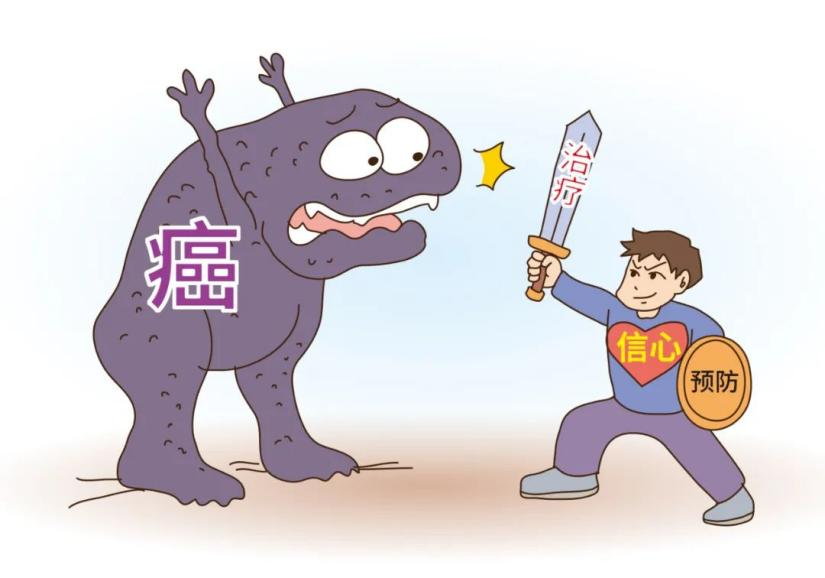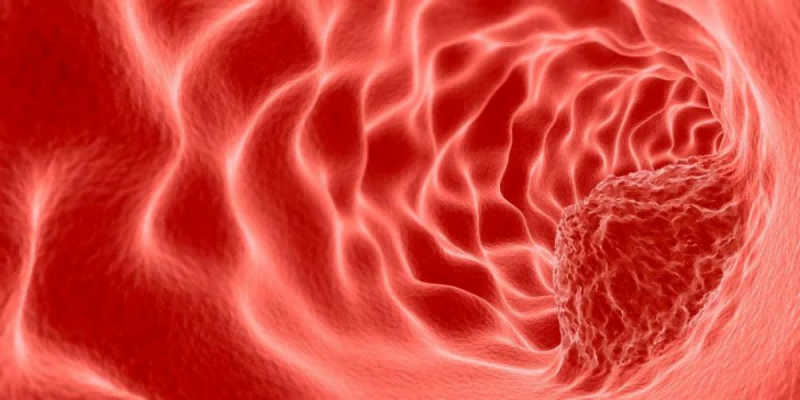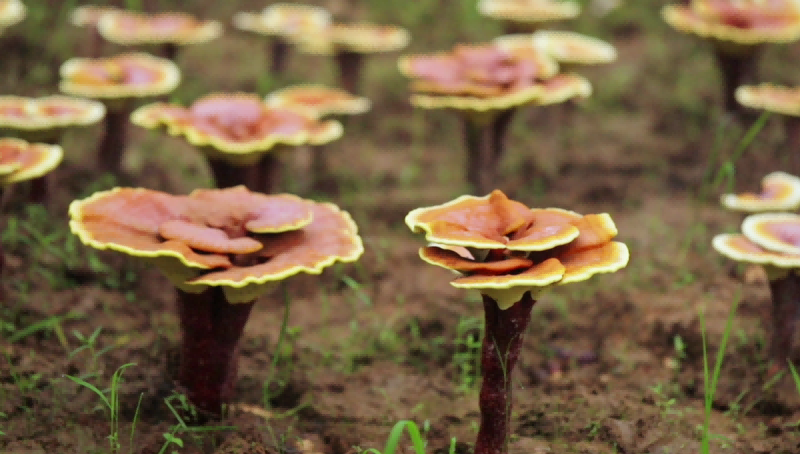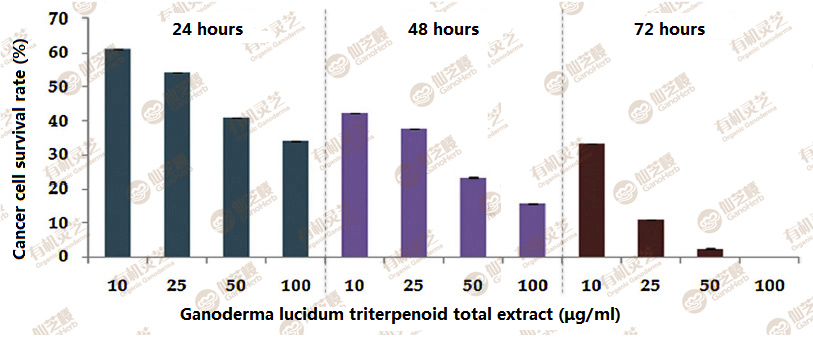Cancer is a frightening chronic disease that consumes energy in the body, causing weight loss, general fatigue, anemia and various discomforts.

Cancer patients continue to be polarized. Some people can live with cancer for a long time, even many years. Some people die quickly. What is the reason for such a difference?
What is “living with cancer”?
The etiology and pathogenesis of cancer are complex. It is unrealistic to completely conquer all cancers. Beating cancer doesn’t require killing cancer cells completely. Blocking the growth and spread of cancer cells allows patients to live with cancer cells for a long time, which is also a way to defeat cancer cells. Living with cancer can be achieved by means of the integration of traditional Chinese medicine and Western medicine.

After receiving targeted therapy, radiotherapy or chemotherapy, most patients not only suffer physical damage but also become weaker with symptoms such as difficulty in eating, low immune function, and frequent vomiting. In traditional Chinese medicine, immunity is equivalent to the healthy qi of the human body. Weakened immunity means insufficient healthy qi in the body, which will cause disease.
As the saying goes, traditional Chinese medicine strengthens healthy qi. The use of traditional Chinese medicine can reduce the side effects of other drugs, improve the tumor microenvironment, and curb the growth of tumors.
Ganoderma lucidum, known as the “magic herb”, is a treasure in the treasure house of traditional Chinese medicine, and its main function is to strengthen healthy qi.

American Ganoderma Scholars: Total Triterpenes fromGanoderma lucidum have anti-tumor properties.
In 2008, International Journal of Molecular Sciences revealed that American scientist Dr. Daniel Sliva’s latest research found that Ganoderma lucidum total triterpenoids (commonly known as Ganoderma lucidum spore oil) have anti-tumor and anti-inflammatory properties.
Based on the research conclusion of Ganoderma lucidum triterpenoids made by Dr. Daniel Sliva, the article further points out that the total triterpenoids of Ganoderma lucidum containing ganoderic acid F can limit tumor angiogenesis in vitro while ganoderic acid X can activate extracellular signal-regulated kinases and dual-specificity kinases, thereby inducing tumor cell apoptosis and promoting the death of human liver tumor cells. International Journal of Molecular Sciencesfinally points out Dr. Daniel Sliva’s research conclusion: Ganoderma lucidum, a natural “Ganoderma lucidum triterpenes”, can be developed into a new substance with anti-tumor use. (Fujian Agriculture, Issue 2, 2012, pages 33-33)
Indian Cancer Research Center:Ganoderma lucidum triterpenes can effectively inhibit the survival of cancer cells.
Amala Cancer Research Center published a report in Mutation Research in January 2017, pointing out that Ganoderma lucidum triterpenes can effectively inhibit the survival of cancer cells and reduce the occurrence and severity of tumors whether they are used externally or internally.
The experimental material used in this study is the total triterpene extract of the fruiting body of Ganoderma lucidum. The result of culturing the total triterpene extract with human breast cancer cell MCF-7 (estrogen-dependent) is that the higher the concentration of the extract, the longer the time it acts on cancer cells, and the more it can reduce the survival rate of cancer cells. In some cases, it can even make cancer cells disappear (pictured below).

The experiment further found that the reason why Ganoderma lucidum can inhibit the growth of cancer cells is not by “violence”, but by “induction” to regulate the genes and protein molecules in cancer cells, turn off the switch of cancer cell proliferation, and initiate the apoptosis of cancer cells.
(Wu Tingyao, Ganoderma, Indian Cancer Research Center confirmed that Ganoderma lucidum triterpenoids can reduce the risk of cancer)
ZhibinLin: Ganoderma lucidum is more used in adjuvant chemotherapy and radiotherapy for cancer.
Professor Zhibin Lin of Peking University Health Science Center, who has studied Ganoderma for more than 50 years, mentioned in the book “Talk about Ganoderma” that a large number of clinical studies and drug practices have proved that Ganoderma lucidum can enhance the body’s anti-tumor immunity, improve the curative effect of chemotherapy drugs, reduce toxic and side effects such as leukopenia, hair loss, loss of appetite, nausea, vomiting, diarrhea, weight loss, liver and kidney damage caused by radiotherapy and chemical therapy, and improve the tolerance of cancer patients to chemotherapy, improve the quality of life of cancer patients and prolong their life. Although a small number of patients who have lost the chance of radiotherapy and chemotherapy have experienced certain curative effects with Ganoderma lucidum alone, Ganoderma lucidum is more often applied to supplement chemotherapy and radiotherapy.
From the point of view of TCM treatment principles of “strengthening healthy qi and eliminating pathogenic factors”, chemotherapy and radiotherapy only pay attention to “eliminating pathogenic factors” and neglect “strengthening healthy qi”, and even damage the healthy qi. The role of Ganoderma lucidum in cancer chemotherapy and radiotherapy just makes up for the shortcomings of these two therapies, that is, it truly “strengthens the healthy qi and eliminates pathogenic factors”. The multi-component and multi-target anti-tumor effect of Ganoderma lucidum, as well as its role in protecting against the injury caused by radiotherapy and chemotherapy, are the modern interpretation of the effect of “strengthening healthy qi and eliminating pathogenic factors”.
(Originally published in “Ganoderma”, 2011, Issue 51, pages 2~3)

Living with cancer is not passive treatment, let alone giving up treatment. It emphasizes a state of “peaceful coexistence” with cancer. Maintaining “optimism + treatment” may be able to achieve long-term living with cancer.



